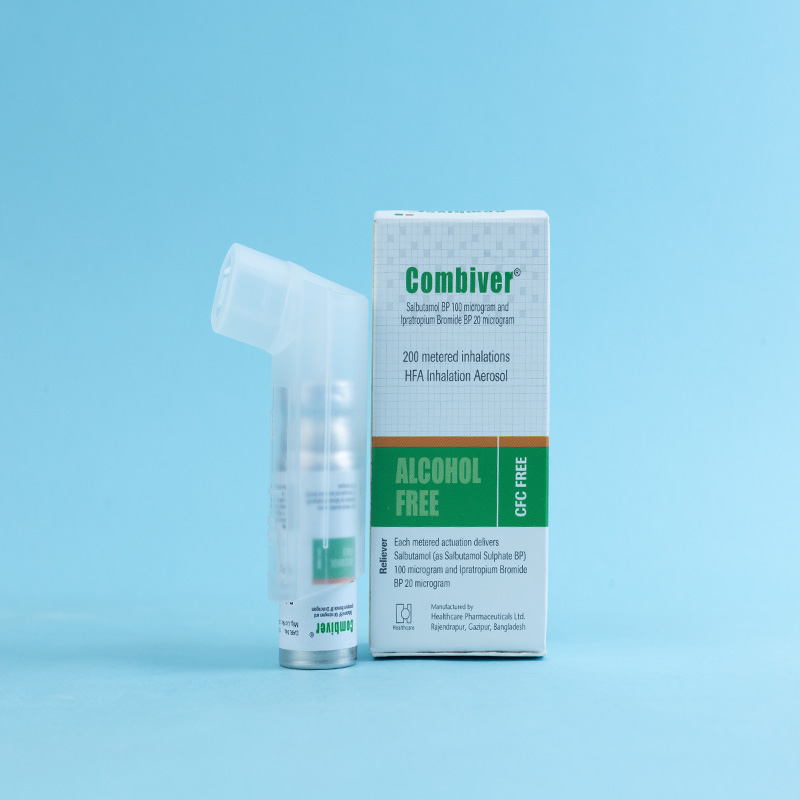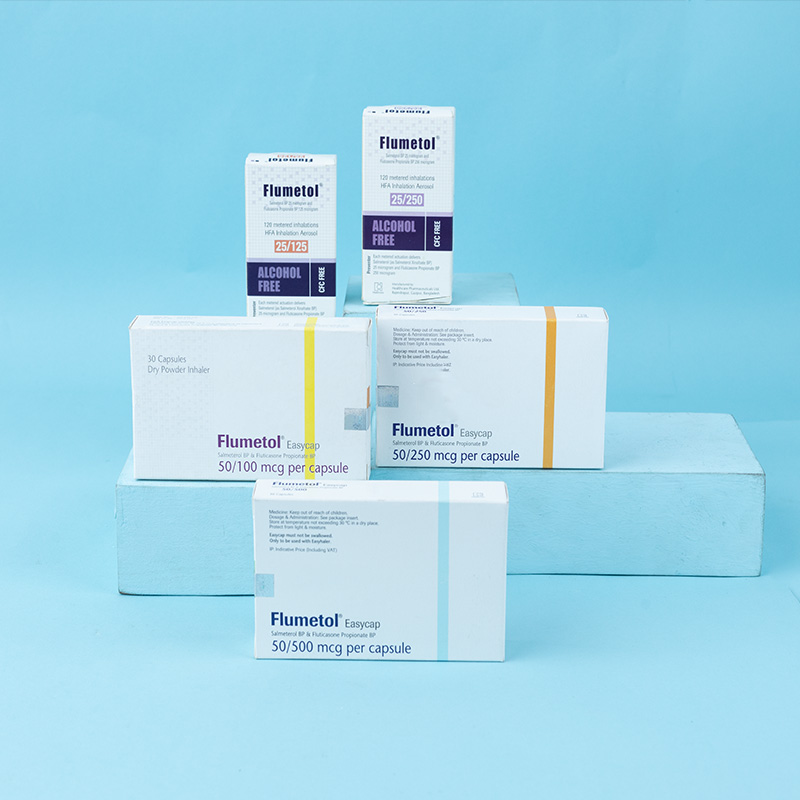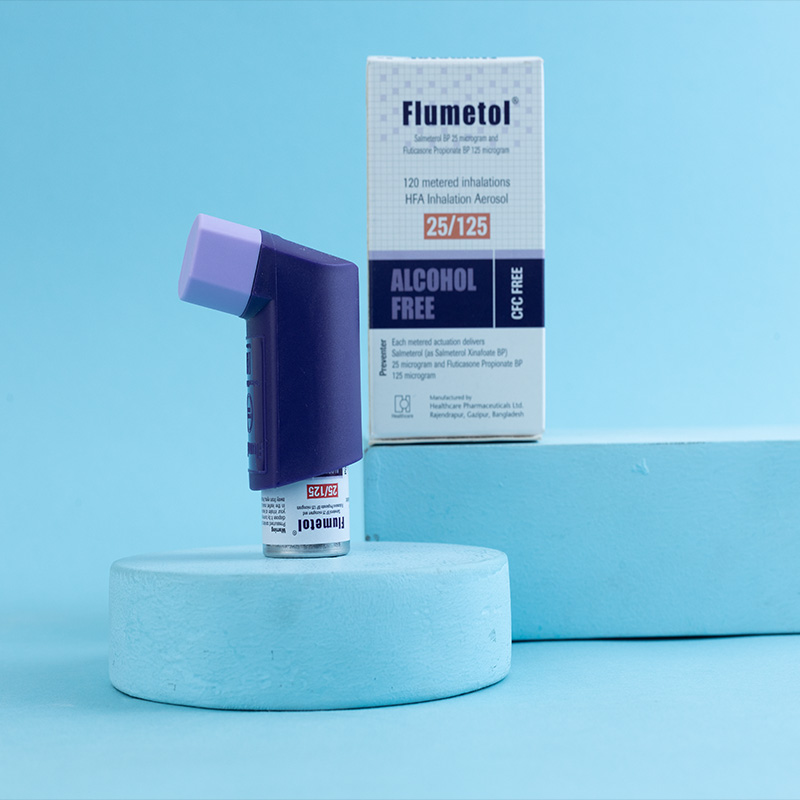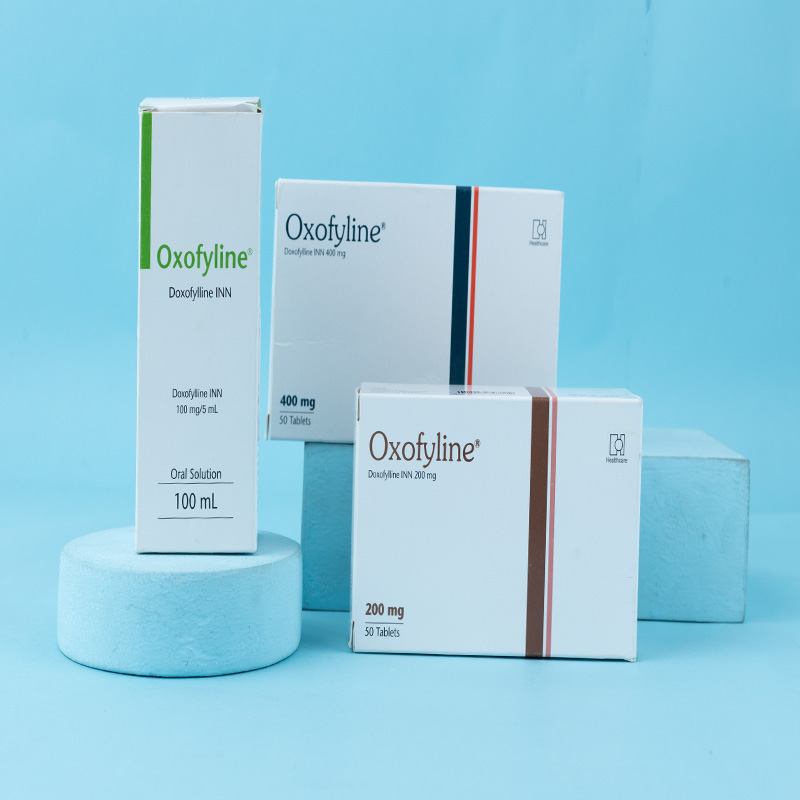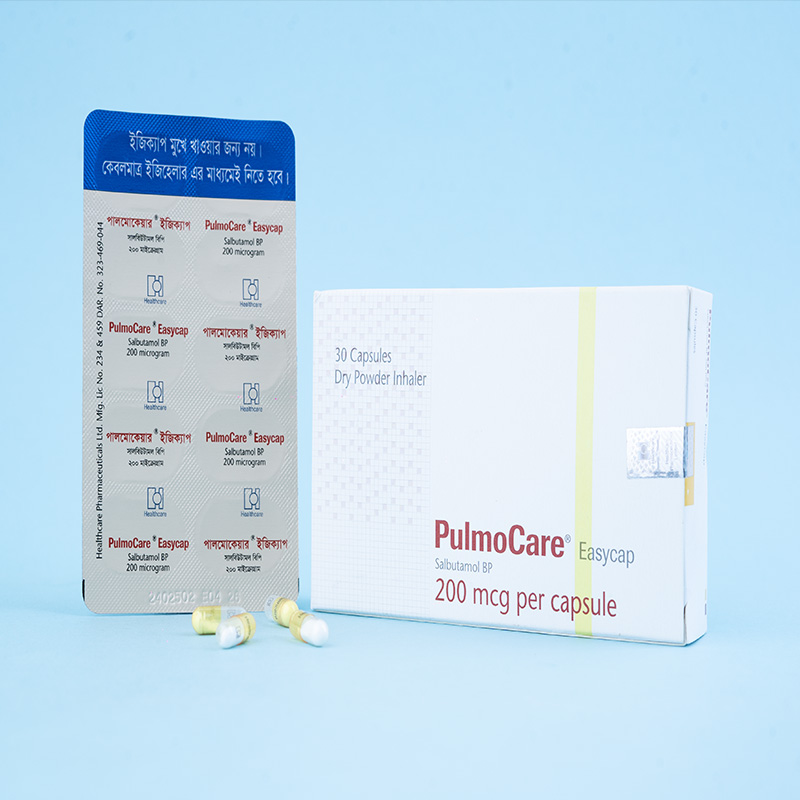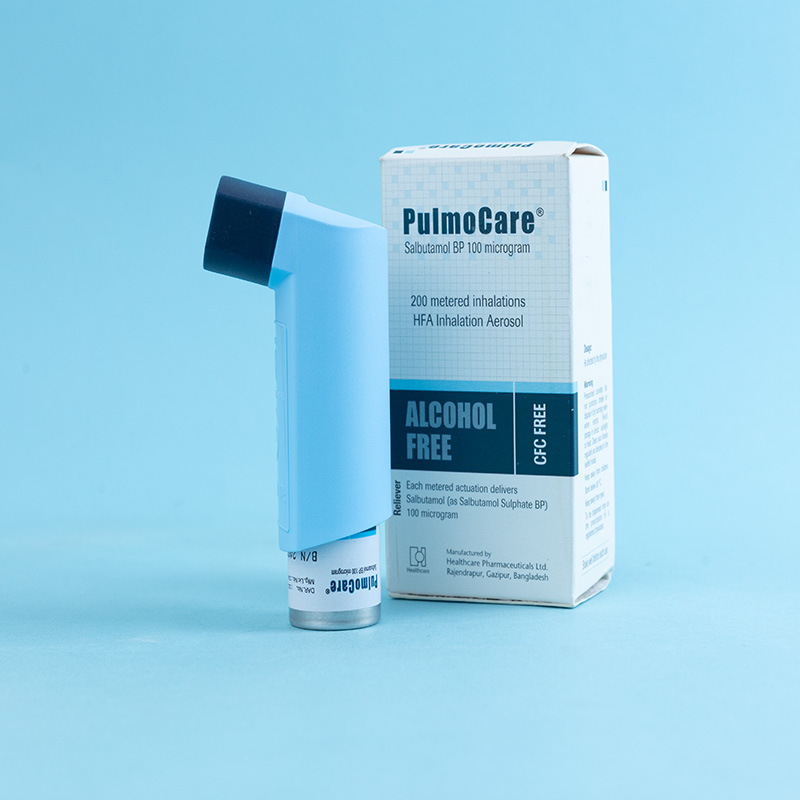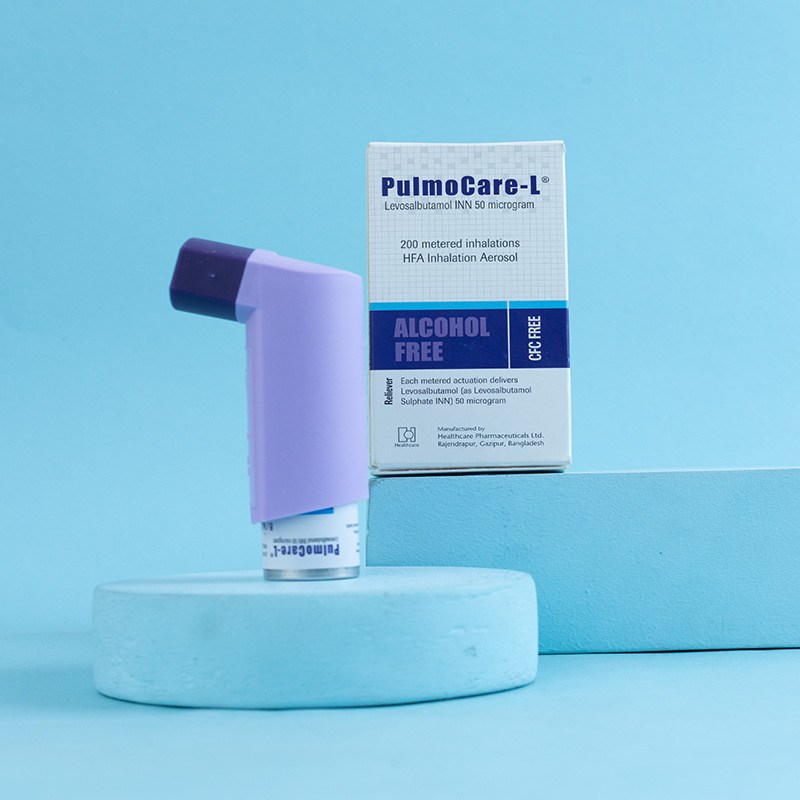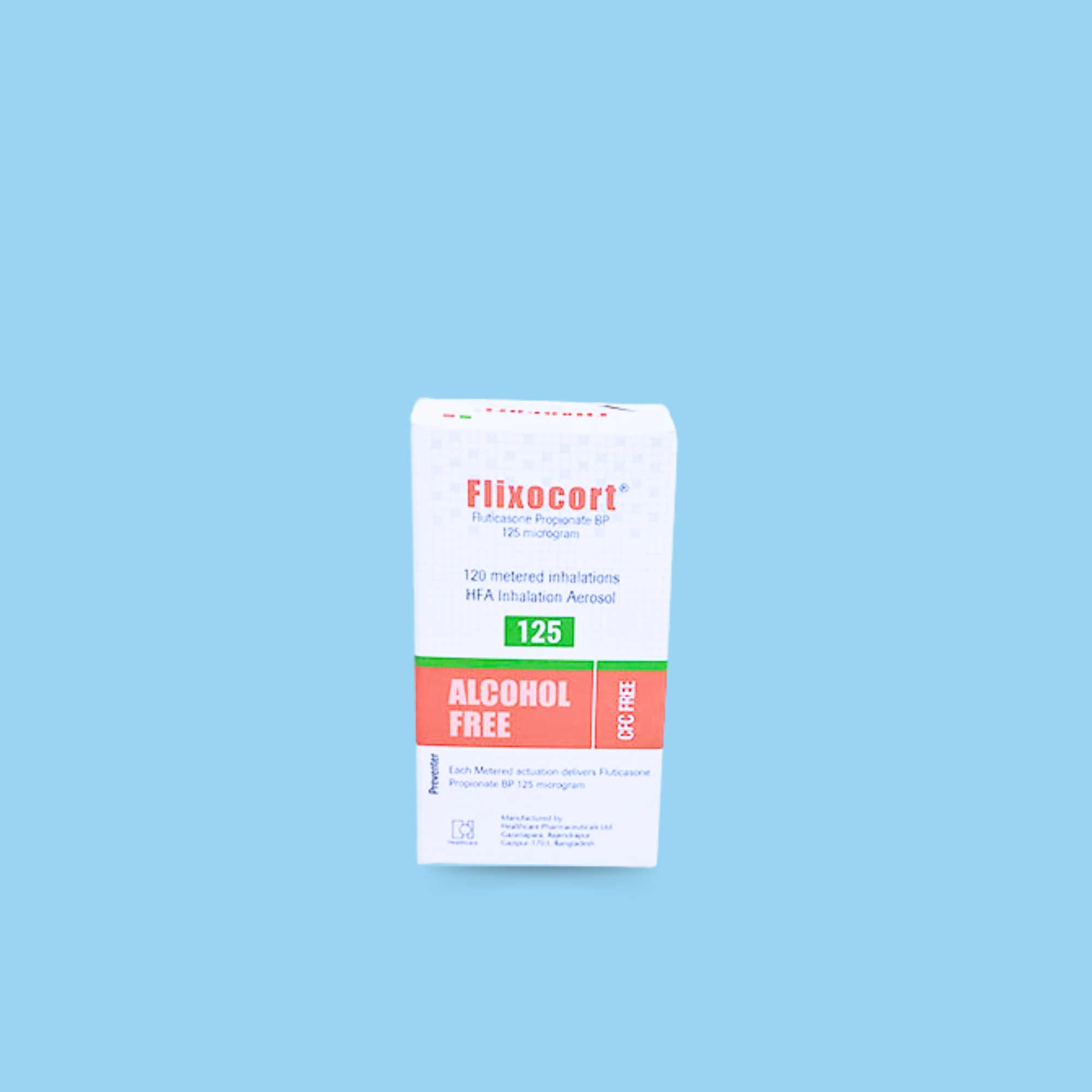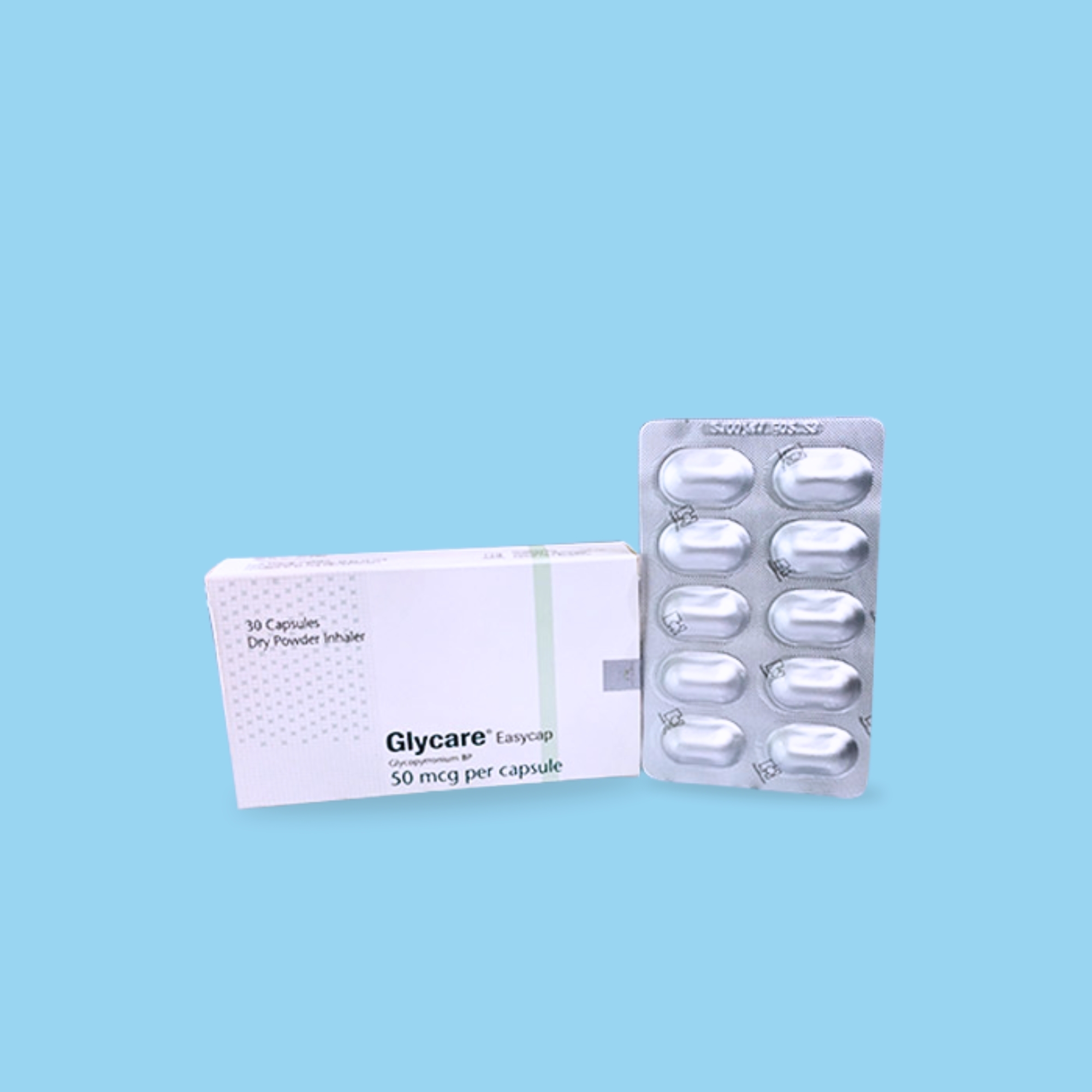Indarol is indicated for the treatment of airflow obstruction in patients with chronic obstructive pulmonary disease (COPD), including chronic bronchitis and/or emphysema.

Indacaterol capsules must not be swallowed, as the intended effects on the lungs will not be obtained. The contents of Indacaterol capsules are for oral inhalation only and should be used exclusively with the device.
The recommended dosage of Indacaterol is the once-daily inhalation of the contents of one 75 mcg, 150 mcg, or 300 mcg Indacaterol capsule using the device.
Indacaterol should be administered once daily at the same time each day via the orally inhaled route. If a dose is missed, the next dose should be taken as soon as it is remembered. Do not use Indacaterol more than once every 24 hours.
No dosage adjustment is required for geriatric patients, patients with mild or moderate hepatic impairment, or renally impaired patients. No data are available for subjects with severe hepatic impairment. Indacaterol is not indicated for use in the pediatric population, as safety and efficacy have not been established.

Indarol interacts with adrenergic drugs, xanthine derivatives, steroids, and diuretics. Concomitant treatment with xanthine derivatives, steroids, or diuretics may potentiate any hypokalemic effect of Indarol. The ECG changes or hypokalemia resulting from non-potassium-sparing diuretics (such as loop or thiazide diuretics) can be acutely worsened by β2-agonists.
Indarol, like other β2-agonists, should be administered with extreme caution to patients being treated with monoamine oxidase inhibitors, tricyclic antidepressants, or other drugs known to prolong the QTc interval. β-Adrenergic receptor antagonists (beta-blockers) and Indarol may interfere with each other's effects when administered concurrently.

All long-acting beta-agonists (LABA) are contraindicated in patients with asthma unless used alongside a long-term asthma control medication. Indacaterol powder is not indicated for the treatment of asthma. Indacaterol is contraindicated in patients with a history of hypersensitivity to Indacaterol or any of its ingredients.

The most commonly reported adverse effects include cough, nasopharyngitis, headache, nausea, and oropharyngeal pain. Other reported side effects include hypersensitivity reactions, paradoxical bronchospasm, tachycardia, pruritus, and dizziness.

Pregnancy Category C: There are no adequate and well-controlled studies of Indacaterol powder in pregnant women. Indacaterol powder should be used during pregnancy only if the potential benefit justifies the potential risk to the fetus.
It is not known whether Indacaterol, the active component of Indacaterol powder, is excreted in human milk. However, because many drugs are excreted in human milk and Indacaterol has been detected in the milk of lactating rats, caution should be exercised when Indacaterol powder is administered to nursing women.

Rarely, serious (sometimes fatal) breathing problems have occurred in people with asthma using a long-acting inhaled beta agonist (e.g., salmeterol). Since Indarol is similar to salmeterol, it may cause similar serious breathing problems. Indarol has not been shown to be safe or effective for treating asthma and is not approved for this use.

The expected signs and symptoms associated with an overdose of Indarol powder are those of excessive beta-adrenergic stimulation, including exaggerated symptoms such as angina, hypertension or hypotension, tachycardia (with rates up to 200 bpm), arrhythmias, nervousness, headache, tremor, dry mouth, palpitations, muscle cramps, nausea, dizziness, fatigue, malaise, hypokalemia, hyperglycemia, metabolic acidosis, and insomnia.
As with all inhaled sympathomimetic medications, cardiac arrest and even death may be associated with an overdose of Indarol powder.

Indarol capsules must always be stored in the blister pack and removed only immediately before use. Keep in a cool and dry place. Keep out of the reach of children.


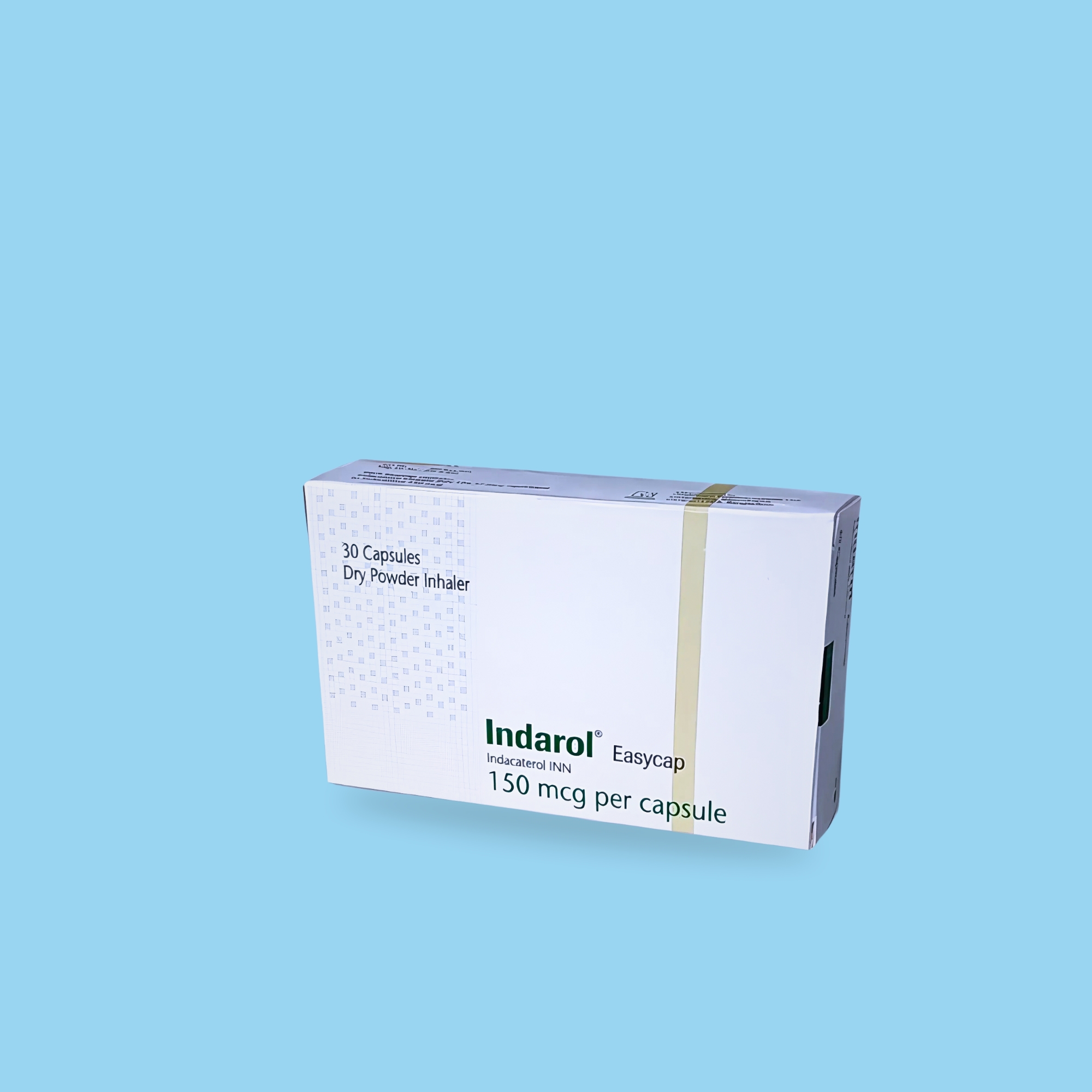
.jpg)

